Vegetarianism
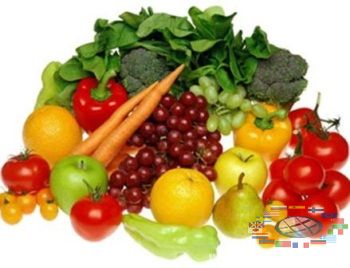
Vegetarianism (vegetarius - vegetable) - the name of the nutrition system, which is based on products of plant origin and excludes (or partially restrict) all products of animal origin.
Types of vegetarianism:
- Ovo-lacto vegetarianism - kind of vegetarianism, when plant food is allowed in combination with the eggs of domestic birds and milk products;
- Lacto vegetarianism - kind of vegetarianism, when you can drink milk and eat milk products;
- Veganism - the most severe kind of vegetarianism, which prohibits the eating of birds and animals meat, sea food, fish, eggs, milk, milk products, and sometimes even honey.
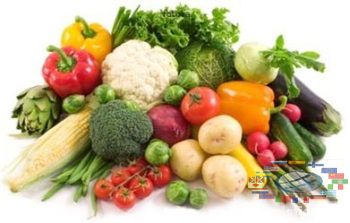 Strict vegetarians - Vegans (Old vegetarians). Now you can find the Young vegetarians (Ovo-lacto vegetarians). All types of vegetarianism allow cooked food, hereby they are different from the followers of Raw vegetarianism - the nutrition system, which is based on eating of exclusively vegetarian raw food.
Strict vegetarians - Vegans (Old vegetarians). Now you can find the Young vegetarians (Ovo-lacto vegetarians). All types of vegetarianism allow cooked food, hereby they are different from the followers of Raw vegetarianism - the nutrition system, which is based on eating of exclusively vegetarian raw food.
Vegetarian food:
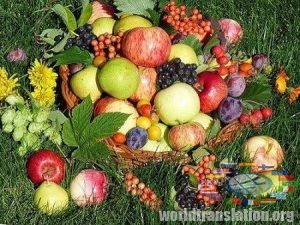 Vegetarian eats around 300 species of root crops (vegetables), about 200 kinds of nuts and around 600 species of fruit. Legumes (peas, soybeans, beans, lentils), nuts (walnuts, peanuts, almonds, pine nuts, hazelnuts), and cauliflower, kohlrabi, spinach and wheat serve as sources of protein. Vegetable oils - – bean, mustard, coconut, hemp, corn, flax, poppy, almond, olive, peanut, sunflower, cotton, etc serve as sources of fat.
Vegetarian eats around 300 species of root crops (vegetables), about 200 kinds of nuts and around 600 species of fruit. Legumes (peas, soybeans, beans, lentils), nuts (walnuts, peanuts, almonds, pine nuts, hazelnuts), and cauliflower, kohlrabi, spinach and wheat serve as sources of protein. Vegetable oils - – bean, mustard, coconut, hemp, corn, flax, poppy, almond, olive, peanut, sunflower, cotton, etc serve as sources of fat.
The proportions in the diet:
- 25% - raw root and leafy seasonal vegetables or vegetable salads;
- 25% - cooked on the fire root and green vegetables;
- 25% - raw fresh fruits or soaked dried fruits;
- 10% - carbohydrates (all products from the cereals, bakery products, sugar (preferably honey));
- 10% - proteins (milk products, cheese, nuts);
- 5% - fats (margarine, butter, vegetable oil).
The use of vinegar and spices is prohibited.
To fully meet the demands of the body in the proteins you should combine the following products:
- peanuts with sunflower seeds.
- beans with wheat or corn;
- sesame seeds with beans, with rice, with peanuts and soybeans, with soybeans and wheat;
- wheat with peanuts, beans, or with sesame seeds and soybeans;
- soybeans with peanuts and sesame seeds, with wheat and sesame seeds or with rice and wheat;
Opinion on vegetarianism
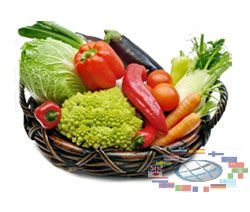 According to one opinion of WHO - a vegetarian diet is considered quite adequate. But other studies under the auspices of the same WHO (1990) tell, that the diet must involve some animal protein (about 30% of the total amount of protein).
According to one opinion of WHO - a vegetarian diet is considered quite adequate. But other studies under the auspices of the same WHO (1990) tell, that the diet must involve some animal protein (about 30% of the total amount of protein).
The harm of vegetarianism
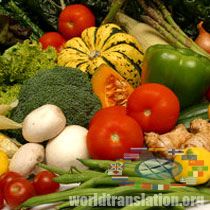 At 100% it can be argued, that at long compliance of orthodox and vegan vegetarian diets eventually appears deficient in vitamins A1, B2, B12, D, iron, calcium, amino acids, zinc, because their quantity is insufficient in plant foods or they are completely absent. Although the quantitative content of iron, calcium, copper and zinc in a vegan diet can be sufficient, but absorption of these elements from plant foods is very low..
At 100% it can be argued, that at long compliance of orthodox and vegan vegetarian diets eventually appears deficient in vitamins A1, B2, B12, D, iron, calcium, amino acids, zinc, because their quantity is insufficient in plant foods or they are completely absent. Although the quantitative content of iron, calcium, copper and zinc in a vegan diet can be sufficient, but absorption of these elements from plant foods is very low..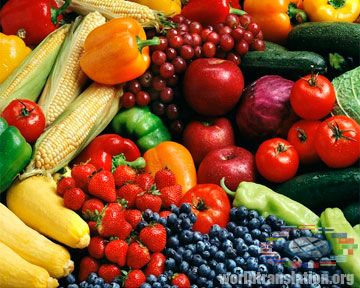 People who excluded from their diet absolutely all animal products, may receive protein deficiency, hypovitaminosis, dysbiosis. Following from this, a strict vegetarian diet can not be considered a balanced diet for pregnant women, nursing mothers, children, teenagers, athletes.
People who excluded from their diet absolutely all animal products, may receive protein deficiency, hypovitaminosis, dysbiosis. Following from this, a strict vegetarian diet can not be considered a balanced diet for pregnant women, nursing mothers, children, teenagers, athletes.